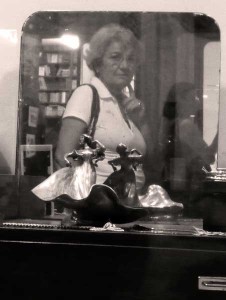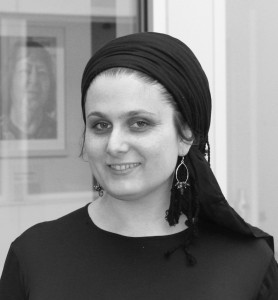 As a newly-minted Russian Language Geriatric Care Manager — green-eyed, bushy-tailed and not yet 30 — I came to the field with my own preconceptions of what my new job would entail.
As a newly-minted Russian Language Geriatric Care Manager — green-eyed, bushy-tailed and not yet 30 — I came to the field with my own preconceptions of what my new job would entail.
Though my team at JFS had prepared me as much as possible for the complexities of the position, part of me envisioned the role as a “professional granddaughter.” I thought of my own Russian grandparents with their accents and malapropisms and cultural misadventures in the States. They are frozen in my memory — charmingly wizened in appearance, perpetually cheery, their home fragrant and warm. Much as I had aided my own relatives in their early days as immigrants, I envisioned schmoozing and listening to stories over tea with surrogate grandparents, translating letters and making phone calls. I didn’t know that assisting my clients through their serious challenges would take me on a profound journey of my own.
My clients — former engineers, scientists, physicians and teachers — were more than capable of navigating through life in their countries of origin. Now they find themselves dependent on family or others to meet their basic care needs and routines in the United States. The practical challenges they face include:
- An isolating lack of transportation.
- Limited financial means.
- The need for medical advocacy.
- Difficulty untangling the bureaucratic web of government benefits.
This is not to say that they aren’t resourceful or resilient — they are. But a lack of English, access to information, and advocacy can make the process feel overwhelming. My clients and I work together to set and achieve goals to support their well-being and care, allowing them to recapture some control over their destiny.
Working in this field has also opened my eyes to the underlying psycho-spiritual process of aging. As a relative youngin’ myself, I somehow assumed that by a certain age, the exploration and soul-searching of youth would solidify into a confident and established identity. For many people, the progression of years unfortunately parallels a decline of health, physical prowess and sometimes cognitive abilities.
This shift from independent to dependent can be devastating, fueling depression and anxiety. So much of our identity is tied to our physical abilities, our professions, our family relationships, even our daily routines. What happens when we can no longer define ourselves by our professions? When our children no longer seem to “need” us? When we no longer garner attention for our beauty or talents? Most frightening of all, who are we, once the most primary features of our intellect and memories begin to fade?
My clients have taught me so much, but primarily what I have learned from my work is that aging, though inevitable, is a process that requires practical planning and spiritual fortitude. Once all of the externals of identity begin to fade, we are left with the question of who we are on the deepest level. Though I may not have answers to this most existential of questions, together with my clients, I embrace the journey.
By Eva Zakharevich
 Eva is a Russian Language Geriatric Care Manager in the Aging in Place program where she strives to help her clients achieve their personal goals, improve their quality of life and feel engaged in the broader community. Eva lives with her husband and two spunky young daughters in the Seward Park neighborhood of Seattle. Her interests include literature, music, Jewish learning and uninterrupted sleep.
Eva is a Russian Language Geriatric Care Manager in the Aging in Place program where she strives to help her clients achieve their personal goals, improve their quality of life and feel engaged in the broader community. Eva lives with her husband and two spunky young daughters in the Seward Park neighborhood of Seattle. Her interests include literature, music, Jewish learning and uninterrupted sleep.
Feature image by Antonio Castagna.



